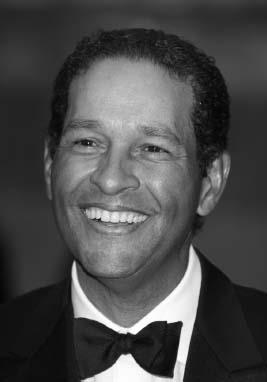JournalismTelevision Newscasters |
Who was the Chicago Tribune’s first black syndicated columnist? |
Vernon D. Jarrett (1921–2004), journalist and radio and television moderator, was a radical and fiery career journalist and an aggressive agitator. He used journalism to ensure that the achievements of blacks would be recognized. He also used the media to promote race matters, politics, urban affairs, and the history of his race. He was articulate and persuasive in his presentations in print and non-print media. Born in the small town of Saulsbury, Tennessee, near the Mississippi border, he was the son of Annie Sybil Jarrett and William Robert Jarrett, the children of former slaves. He graduated from historically black Knoxville College in Tennessee (1941) and continued his studies in 1946 at Northwestern University, where he studied journalism. From there he moved to the University of Kansas in Missouri in 1956, studying television writing and producing. Still later, in 1959, he studied urban sociology at the University of Chicago. By now he was well prepared for the positions that he would hold.
Although Jarrett taught at Northwestern University and at City Colleges of Chicago, as time passed his primary interest was journalism. In 1946 he joined the Chicago Defender as general assignment reporter. He joined the Chicago Tribune in 1970, becoming its first black syndicated columnist. He was also a columnist and a member of the editorial board for the Chicago Sun Times, posts that he held from 1983 to 1996. Then Jarrett became a talk-show host, producer, and commentator for WLS-TV, ABC’s station in Chicago. Now he was in position to broadcast his views, which he did on the show Black on Black, serving as first moderator. Renamed For Blacks Only, and then Face to Face with Vernon Jarrett, the hour-long program gained popularity. Chicago’s only black-owned radio station, WVON-AM—of which he was part-owner—aired his Jarrett’s Journal beginning in 1996. The elder statesman was a part of numerous national and international media productions, and in 1992 the MacNeil/Lehrer Report selected Jarrett to analyze the final debate between President George H. W. Bush and presidential candidates Bill Clinton and Ross Perot. Jarrett was also a featured commentator for four of the five shows in the British Broadcasting Corporation’s The Promised Land—a television series on black migration to the North after World War II. Jarrett was instrumental in promoting black journalists and their work, as seen in the Chicago Association of Black Journalists, the National Association of Black Journalists, and the Monroe Trotter Group at Harvard University, which he founded. He was a constant presence at the NABJ conventions and charged those presidents who succeeded him to keep advocacy for black journalists at the head of the association’s goals. In founding the Trotter Group, he commemorated the work of William Monroe Trotter, a journalist and elite militant integrationist, who in the early twentieth century was an important black spokesperson. Jarrett further demonstrated his interest in race matters from 1977 until his death, serving as a member of the Advisory Board for the Race Relations Institute at Fisk University.
One of his prized activities was ACT-SO (Afro-Academic, Cultural, Technological and Scientific Olympics), which he founded and chaired. The program recognizes the academic and artistic talents of young blacks in grades nine through twelve in a manner similar to that given to star athletes. In 1977 the NAACP adopted ACT-SO as one of its major programs. With NAACP support and Jarrett’s devotion to activities for young people, the program is active in over one thousand cities across the country.

Sportscaster Bryant Gumbel became co-host of The Today Show in 1982 and later appeared on programs such as The Early Show.
